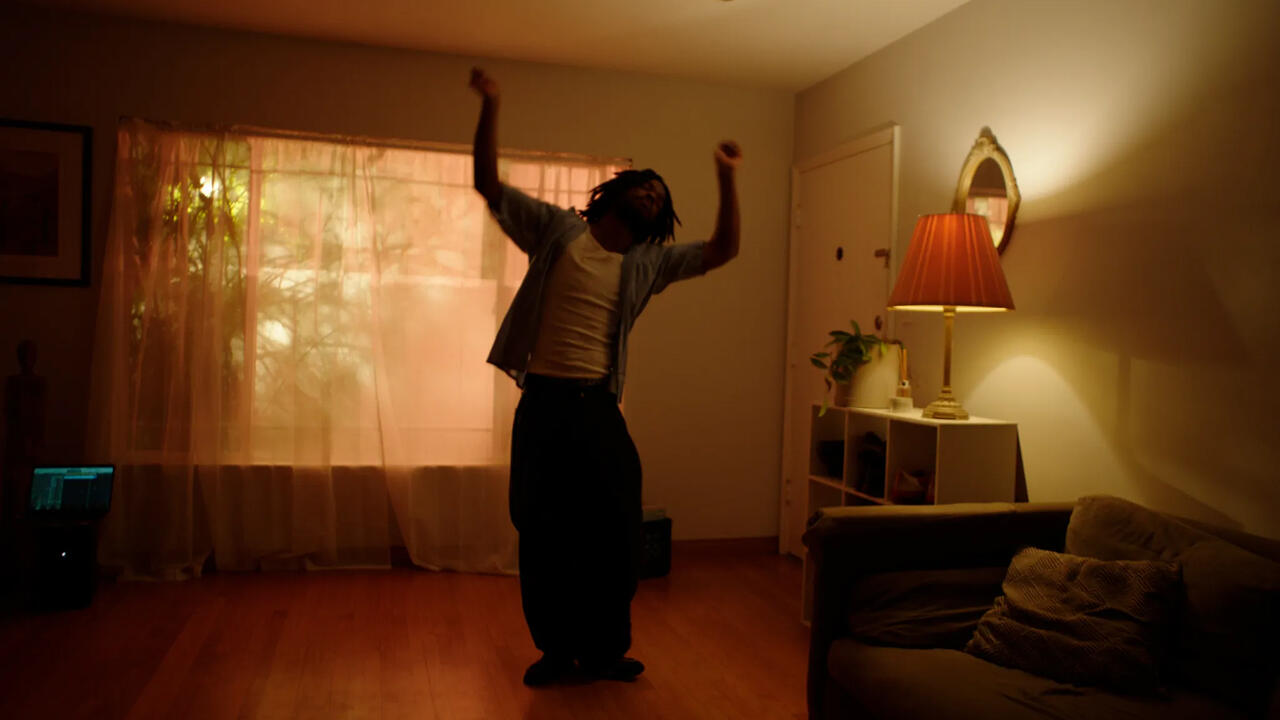Top Scorer: Patrick Belaga
The composer, performer and model has many strings to his bow
The composer, performer and model has many strings to his bow

Are you an L.A. native?
I grew up in Virginia and D.C., but people around me said I belonged in California. I was outdoorsy and laid back. And had my shaggy blonde hair.
Your hair isn’t looking very shaggy in this shoot!
I’ve been doing a middle part recently. just to change things up. I grew up following a lot of my oldest brother’s interests, so my references have always been late 1990s. I get people in the street calling me a Backstreet Boy at least two or three times a month.
Your brother was a big part of your coming to music, right?
I’m the youngest of three boys. My middle brother Thomas, who passed away when we were children, had a heart condition, so he wasn’t able to participate in sports. My mom looked into other ways he could join a team building community. She found a Japa- nese style of musical training called the Suzuki Method, which is all about community building. After my brother started learning violin, I wanted to play something too. So I was givena cello aged four.
When did you begin composing?
In my third year in music school. It wasn’t encouraged by teachers, and I didn’t really understand what I was doing at first, because classical training never focussed on spontaneity. I had a period in college when I struggled with depression and started meditation, and improvisation kind of grew out of that. It was deeply interior. It was prob- ably quite awful to listen to at first! Like someone learning to play the drums.

What are some of your favourite soundtracks — or movies you’d love to score?
Jóhann Jóhannsson —RIP —is one of my favourite composers: he did The Theory of Everything and Arrival. I’d love to score something Sci-Fi or horror: like The Witch, or Under the Skin (which already has a beautiful score by Mica Levi), or Annihilation. I like movies that push our sense of ourselves as humans.
You composed the score for Netflix’s ‘Gaga: Five Foot Two’ (2017). How did you approach having to respond to another person’s story, and sound?
First, I’d watch the scenes and identify a mood in each one. I’d find a tonality to match that, and then just explore all the ways of reaching that emotional quality. Sometimes I’d hone a particular moment and go away, and then revisit. It was a bit like zooming in-and-out with a magnifying glass. But I’m also interested in moments when there’s a disparity between what you see on screen and the audio, and having to reconcile the two. When a film score is too on the nose emotionally, it can make the audience passive rather than actively engaged.
Were you nervous about the score’s reception?
There are moments when I’m really sure of myself and moments when I’m really nervous. With today’s audio technology you have almost infinite possibilities, so it’s harder to sense when the work is “done”. This is why I love live performance. You rehearse, you decide the arc of the piece, and you play – and then it vanishes into thin air. No-one can touch it, take it home, edit it, or own it.

What performances do you have coming up?
I’m performing with Nico Muhly at the Ace Theater in L.A. in May. I’m work- ing with a guitar effects pedal, so I can move between the cello sounding like a cello and the cello sounding like an alien monster. Nico’s been an idol of mine since music school – I’m still kind of in shock he reached out to work together. In late April I’m performing several shows with boychild and Wu Tsang as Moved by the Motion, A Sudden Rise for the Whitney Biennial in New York City. I met Wu Tsang and Boy Child at a party in 2014 when I had just moved here and didn’t know anyone. They asked me to come to their studio to try out rehears- ing for fun, and literally a few weeks later we had a show at MOCA Geffen: my first ever public concert. The shows at the Whitney will be a performance that we developed in residence at EMPAC, which will utilize a series of poems by Fred Moten.
Do you feel part of the ‘art world’ now?
Yes and no. Many of my close friends and collaborators are artists, perform- ers or visual artists. I wasn’t raised with any diet of art history. My parents were into music, athletics, camping — not museums and galleries. So when I got to L.A. and started to meet artists like Wu, boychild, Ryan Trecartin and whatnot, I was just identifying with them on a personal level. I think my lack of art world experience made it easier to get on: I didn’t have an agenda. I like the art world for its open- mindedness regarding performance — whereas the classical music world can be more rigid and academic. But I still identify as a musician and composer.
And a model, of course. Are you into fashion?
I just dress in a way that makes me feel good. I mostly buy from thrift stores, or even places that sell clothes by weight. As for brands, I’ve shot a couple of times for Eckhaus Latta and am friends with Zoe Latta. I have this fun red knit cropped sweater by them, full of very deliberate holes. I love wearing that. It makes me feel like I’m a court jester.
























